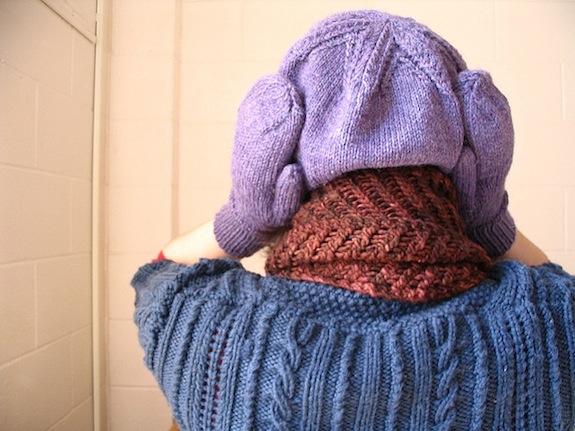Researchers Hope Freezing Cold Caps Can Prevent Chemo Hair Loss
Researchers are testing a cap so cold that it numbs the scalp during chemo to keep the hair from falling out

Image: syntaxoflife
Chemotherapy drugs are powerful and not particularly discerning. They targets cells that divide quickly. Cancer cells divide quickly. But so do hair cells—that’s why those undergoing chemotherapy wind up losing their hair.
But there might be a way keep more of those strands attached, freeing patients from “one of chemotherapy’s most despised side effects…revealing to the world an illness that many would rather keep private,” writes NPR. Researchers are testing a cap so cold that it numbs the scalp during chemo. This reduces blood flow, which makes it harder for the cancer drugs to reach the hair follicles and do their dastardly deeds. The big open question, however, is whether keeping the drugs from the scalp could decrease their effectiveness on the cancer. Because while losing your hair is bad, cancer is most certainly worse.
The Associated Press spoke with Hope Rugo and Susan Melin, two researchers involved in the study. According to the AP, they’ll test the cap on lower risk patients:
Later this summer, Rugo and Melin, along with researchers at a few other hospitals in New York and California, will begin enrolling 110 early stage breast cancer patients in a study of the DigniCap brand of scalp cooling. The tight-fitting, insulated cap is attached to a cooling machine to stay around a shivery 41 degrees as patients undergo chemo. Participants’ hair will be photographed for experts to assess, and they’ll be compared with a small group of similarly ill patients who get chemo alone.
Patients can already get cold caps online. One company named Penguin, rents the caps for $455 a month. Another, called DigniCap, doesn’t offer sales in the United States. Other people make their own, according to the Associated Press:
Patients haul a collection of caps to chemo sessions on dry ice, or store them in special freezers provided by about 50 hospitals. It’s deliberately separate from doctors’ and nurses’ care — typically, patients bring a friend to help them switch caps every 20 to 30 minutes when one loses its chill.
The FDA hasn’t commented on the caps yet, let alone approve them. There isn’t a ton of evidence for or against this strategy, either. One review paper found that, while it seems to work for some patients, it doesn’t work for everyone. This paper also pointed out that without studies, the exact temperature and frequency people should use is still unclear. Until there’s more research, the best option for chemo patients who want to try this out probably is to build their own caps and aim for the very scientific temperature of “really, really cold.”
More from Smithsonian.com:
The Accidental Cure for Hair Loss
Can Stress Really Make Your Hair Fall Out?
/https://tf-cmsv2-smithsonianmag-media.s3.amazonaws.com/accounts/headshot/Rose-Eveleth-240.jpg)
/https://tf-cmsv2-smithsonianmag-media.s3.amazonaws.com/accounts/headshot/Rose-Eveleth-240.jpg)